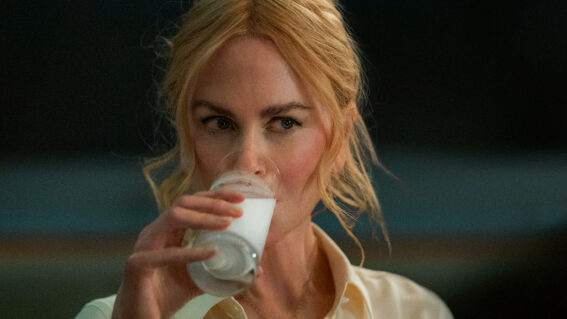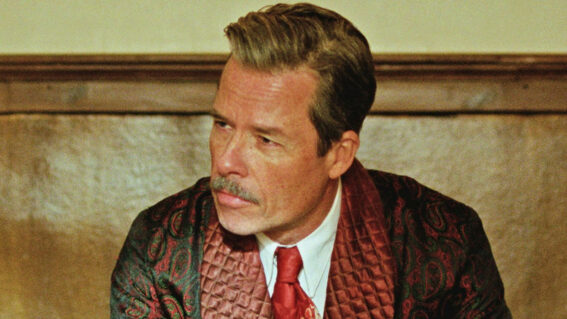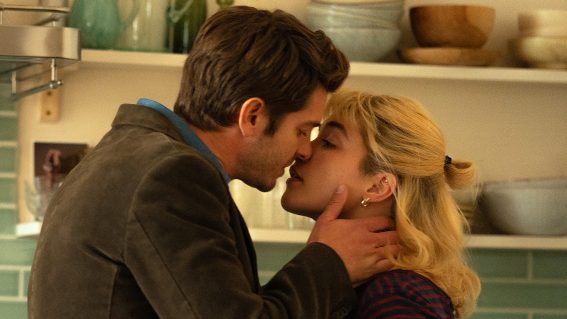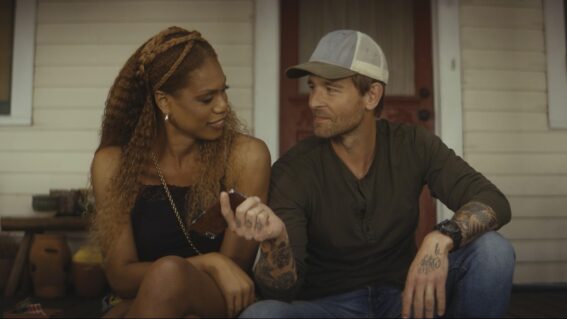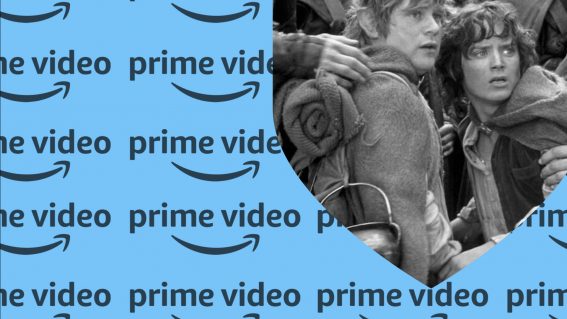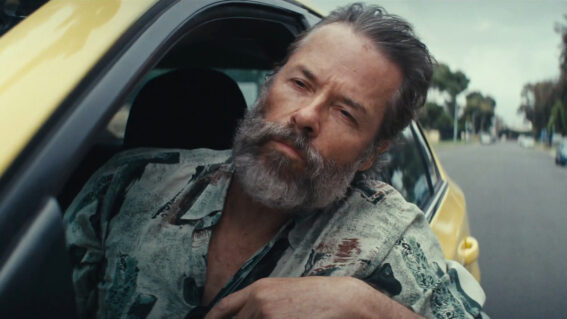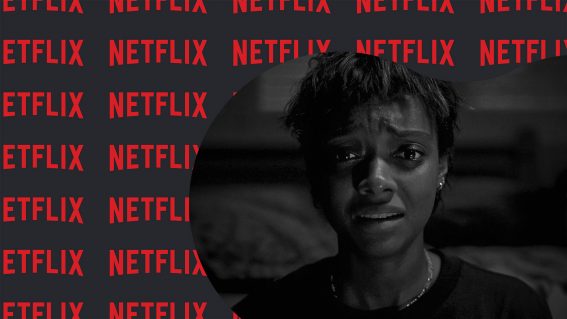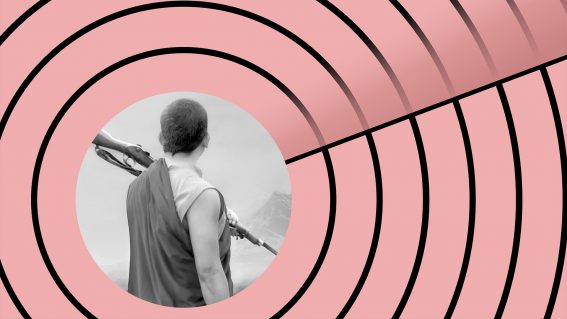Tony Hawk and Steve-O are among the stars bringing Aotearoa skate icon Lee Ralph’s story to screens
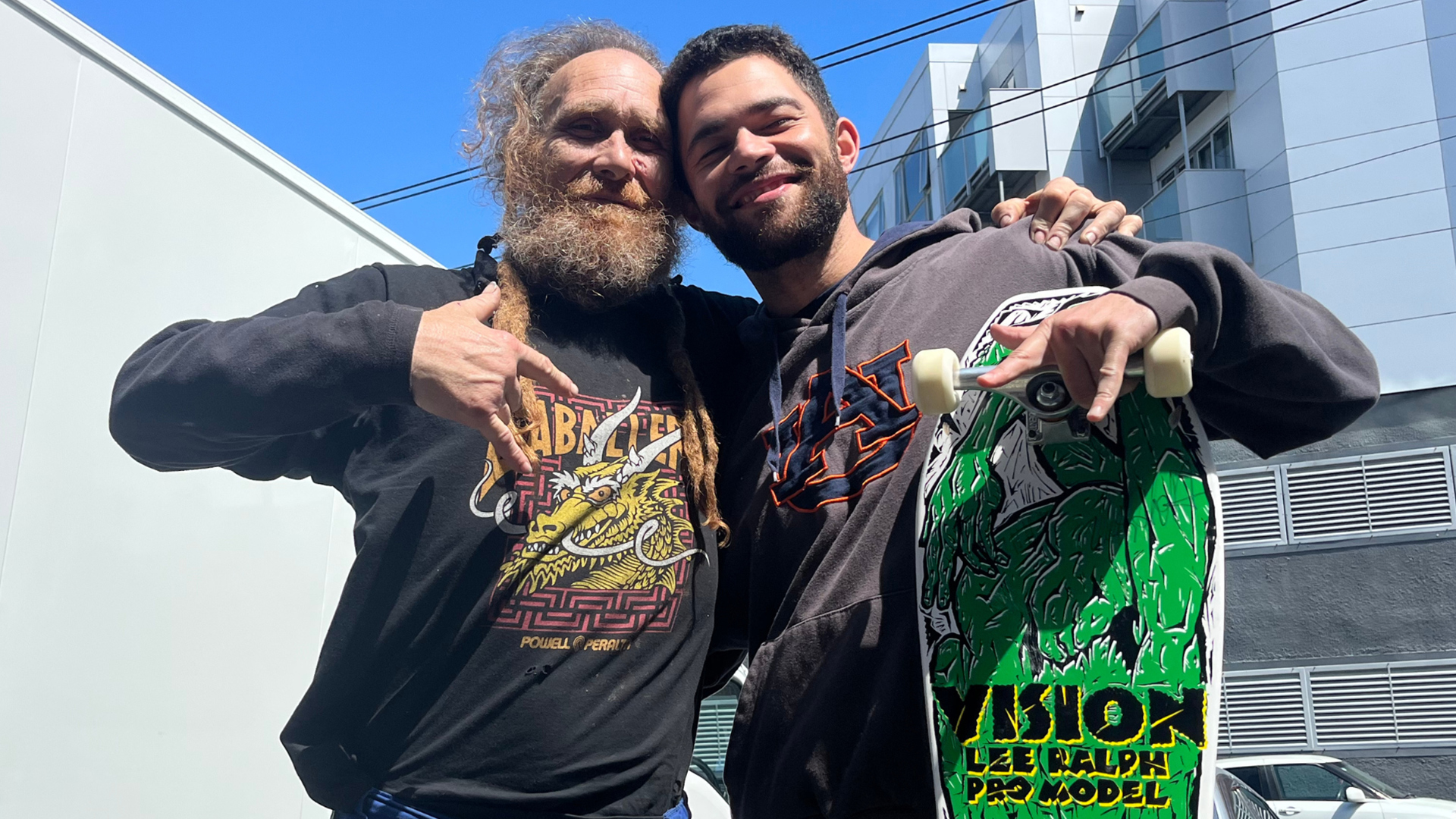
Maybe you’ve heard of skateboarding icon Lee Ralph – and quite likely not. Now, with the help of international legends like Tony Hawk and Steve-O, the New Zealand legend’s incredible story is coming soon to screens worldwide. Steve Newall finds out more from Sk8 or Die: The Lee Ralph Story showrunner Tom Hern.
Last week Variety ran a story titled Travon Free and Martin Desmond Roe Directing ‘Sk8 or Die: The Lee Ralph Story’. Once the shock subsided that the film industry bible was telling the world about an upcoming production centred around one of Aotearoa’s underappreciated cult heroes, I was fascinated to learn more about the project—and in turn to discover more about Lee when it emerges.
For those unfamiliar, Lee Ralph is a New Zealander who left a lasting impact on the global skateboarding scene, joining the explosion of skating’s popularity when he travelled to the US as a teenager in the late ’80s. Signed to legendary skate brand Vision, and a peer of Tony Hawk, Mark Gonzalez, and others from that era who became superstars, Lee didn’t himself become a household name. Like his attitude , his art, and his style both on and off the board, his journey and life have been unconventional (and not short of challenges).
Often skating barefoot, Lee is a one-of-a-kind character who disappeared just when his career reached its peak—2021’s Scratched episode (part of a series championing Aotearoa’s lost sporting legends) is a good primer:
Sk8 or Die: The Lee Ralph Story is a six-episode drama written by Tom Hern (The Dark Horse, The Panthers) and Halaifonua (Nua) Finau (The Panthers, Red White and Brass), who also serve as showrunners through their Aotearoa production company Tavake. Variety reported that Vinnie Bennett is to star as Ralph, with Keisha Castle-Hughes playing his sister and partner in crime Kim—and having had the privilege of watching an early table read of the pilot script for episode one, they’ll bring a lot to their roles.
A conversation with Tom Hern sheds light on what got those big international names involved—Lee’s unique personality. Hern recalls meeting Lee for the first time, some twenty years ago:
“One of the first nights that I met Lee was actually at the infamous “The Mansh,” they call it, which is a big flat on Richmond Road that many of us passed through over the years. Otis Frizzell used to live there, and a bunch of film industry folk and stuff. The first time I met Lee, I was with my friend Merlin, and when I introduced Merlin to him, that triggered him to just drop into a full role-play of being a knight of the round table. He just stayed in character for the whole night, and we all sort of went along with it, and that was how I first got to know Lee.”
“That night we all hung out, he just had us all eating out of the palm of his hand and entertained for the whole night. That’s why Tony Hawk wants to get on board the project, and Steve-O, all these guys. They actually look up to Lee and admire his authenticity and just the fact that he’s the real deal bro—he’s a real deal skater, he’s a real deal punk, but he’s not even trying. That’s just, it’s just who he is.”
As the pilot script for episode one makes clear, when Lee arrives in the US he is quickly held in high regard by the skateboarding community. I asked Hern if the involvement of the era’s star names was to not just celebrate Lee, but embrace him, even help him. “That was a big reason for Tony boarding,” Hern says: “He wanted to know that Lee was really involved in and supportive of the project, and people want to get behind him. He’s a folk hero of the culture, and that’s because in the time since he was there doing it, when he was skating pro, the sport has gone on to become an Olympic sport. It’s big business, as well. It’s, like, totally moved away from what a lot of those OGs got into it for.”
“I think Lee is the symbol, or almost like the mascot or the icon of the original spirit of skateboarding, which is doing it for fucking fun, you know. But that’s not to say that he doesn’t go hard. He went the hardest.” As Hern explains, the paradox of Lee Ralph is that he’s also extremely competitive, which explains his ascent to the upper echelons of skateboarding, but at first glance doesn’t match up to his lifestyle.
“Up until just the last few months, Lee has never had a cell phone, a bank account number,” Hern says. “He lives life in a different way. And at first look, you might go ‘is that dude, homeless and what is he up to?’ And then when you sit with it longer, and the more you get to know him… I think he’s actually closer to the answers than I am! that’s what we’re trying to capture, or at least sort of put forward, which is just an alternate way of looking at the world and moving in it.”
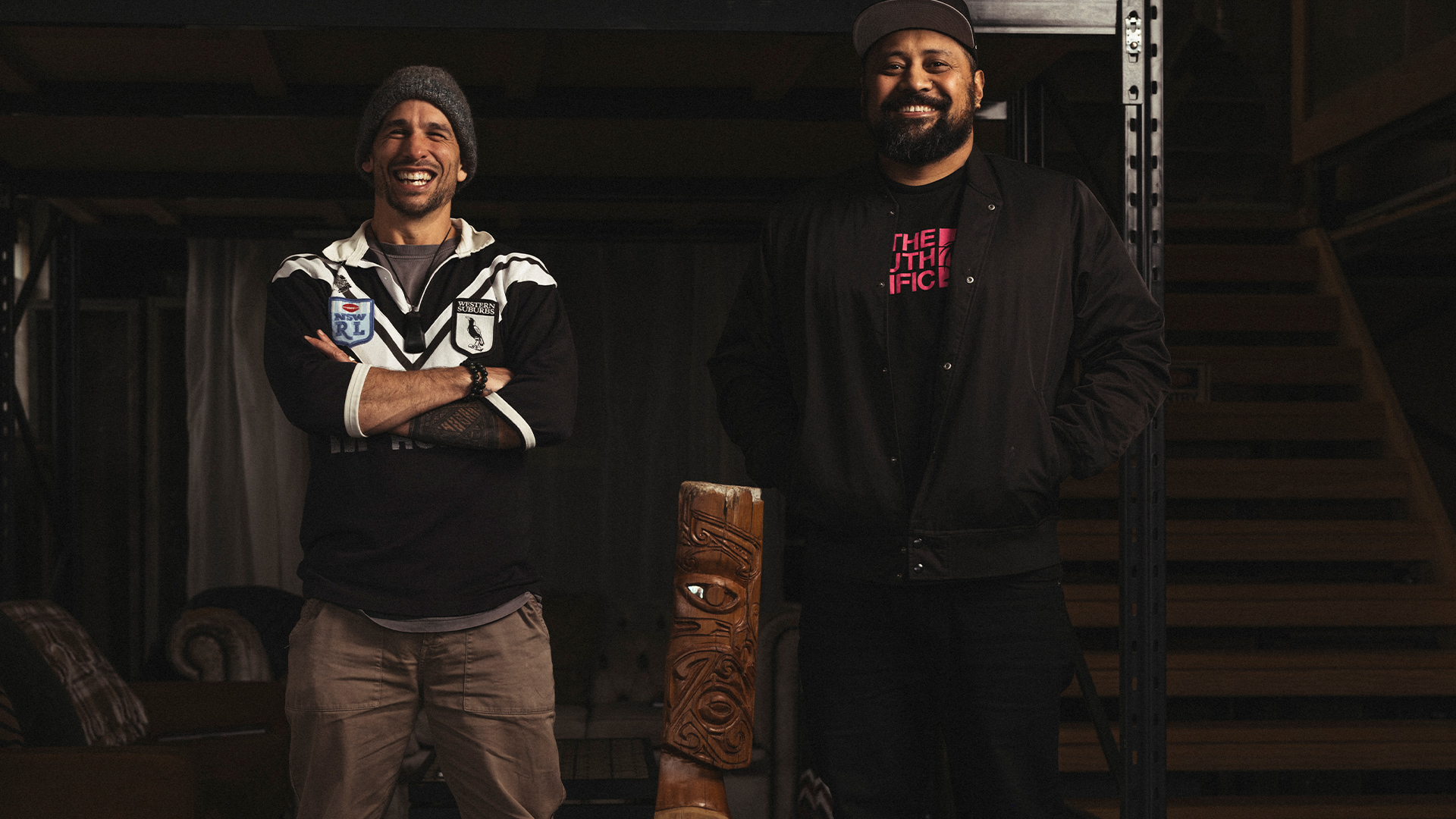
It’s a journey that has taken Lee through some fascinating times and places—physically, through our culture, in time… The episode one pilot script jumps nimbly between Ralph’s arrival in the US to skate, his later years off the grid, and a turbulent childhood with his dad Scruff (a flawed legend in his own right).
“We’ve had a lot of fun trying to find smart transitions in and out of those different eras,” Hern says. “You know, flashbacks can be dangerous territory, if not motivated and considered in how you go in and out of them. But now we’re pumped to be able to go back to those sort of Mr. Asia circles, that Scruff was moving in, to Lee skating at the Big Day Out in the ’90s to, you know, him holding an art exhibition in later life to LA and Phoenix in the 80s. It’s like, it definitely opens the story right up.”
Here in Aotearoa, Sky New Zealand Originals has commissioned the series, with Tavake currently seeking the final international partners to get production greenlit. As Thomas Robins, Head of Sky New Zealand Originals, told Flicks: “Lee Ralph is an unsung hero whose extraordinary story is as wild as it is touching. From an Aotearoa New Zealand perspective I can’t think of two creatives more perfect than Nua and Tom to be at the helm of this project. Sky New Zealand Originals is thrilled to be collaborating with Tavake and the film’s fabulous cast. From an international perspective, you simply couldn’t ask for a better line-up of Executive Producers than Steve-O, The Unreasnble team and the one and only Tony Hawk.”
It’s thrilling to picture Lee’s story coming to the screen here in Aotearoa—and perhaps even more so to reach an international audience with such a specific New Zealander’s story. “In some ways, cultural specificity used to be a blockage,” Hern muses. “It’s now, I think, an asset. Actually, you know, we all watch shows on the streaming platforms in foreign language, either with bloody overdubs or subs or whatever… however we like to do it. But it’s just not a blockage anymore. At the end of the day, Lee’s story is extremely universal. It’s about a family, bloody motley, challenged, but extremely, you know, colorful and vibrant, family of survivors, ultimately, and that’s what the glue of the story is.”
“When we spent time with Lee and his sisters, we heard some of the stories of what those guys have been through—but the smile that they told those stories through was completely genuine, and we kind of left really inspired by that, so that’s what we’re trying to capture here, and what I think will resonate with international audiences. Like we definitely want to make something that skateheads feel proud of, but it’s a story that transcends that. It’s really about communal healing. And you know, about a wizard from another time, you know, because that’s kind of what he is.”
This interview has been edited for length and clarity.

